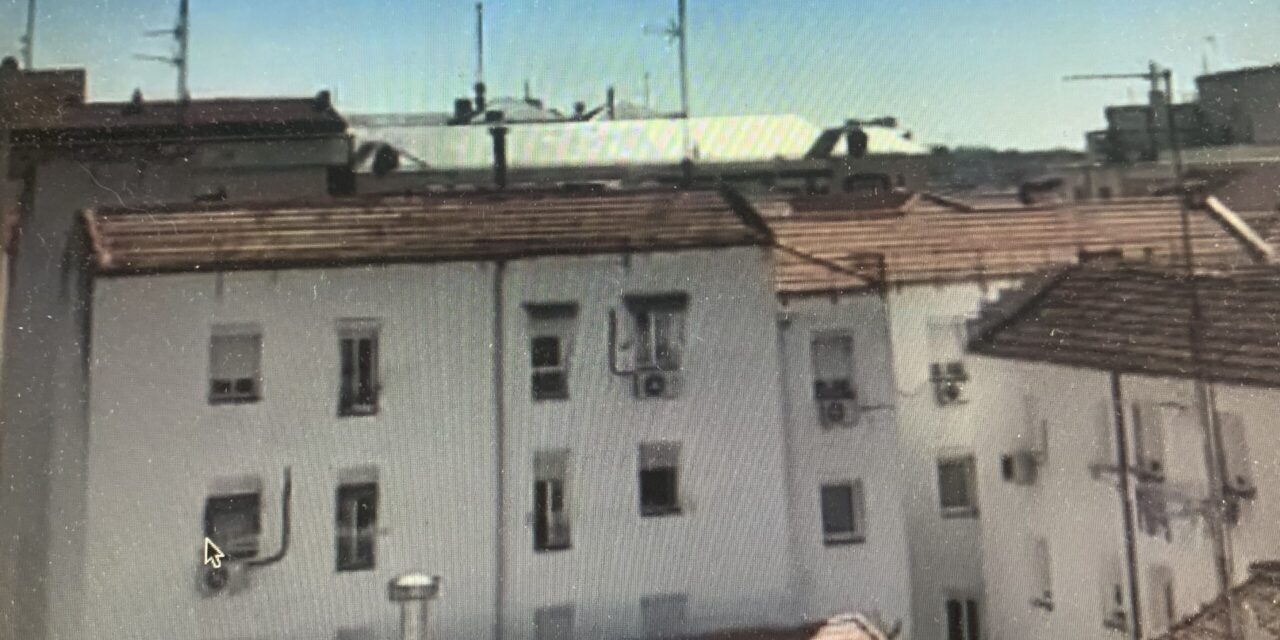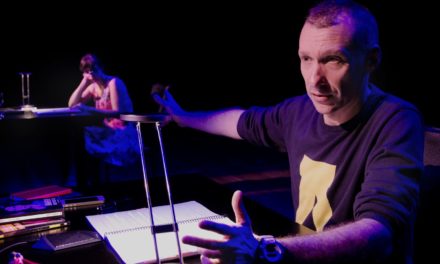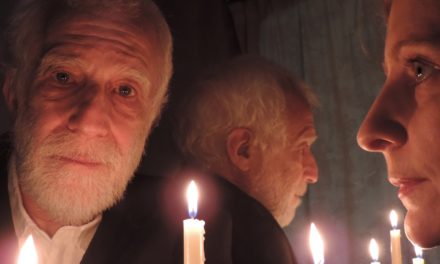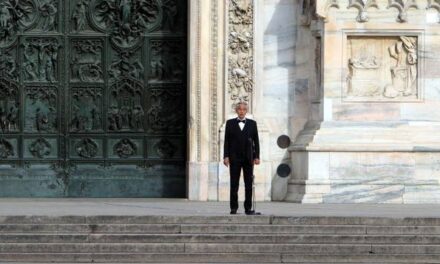In late March, as Spain experienced the effects of Coronavirus lockdown, publishing house uÑa RoTa asked their authors—novelists, dramatists, poets, essayists—to film a video to post on the company’s webpage. Juan Mayorga, one of Spain’s most important living dramatists, posted a video essay, recorded on his phone and taken from the balcony of his Madrid apartment with the city in lockdown. Using material from El chico de la última fila (English title: The Boy at the Back), the author reads from his 2006 play as two characters debate what can be seen and imagined as they voyeuristically look into nearby apartments. The English-language version (performed by Neil Pearson and Will Howard) uses a 2014 BBC Radio’s version, translated by David Johnston and directed by Nicolas Jackson to celebrate the power of the imagination in conjuring narrative drama from whatever we have at our disposal. Even when we may think our options are limited, the imagination offers new worlds of fiction and opportunity as we think of ways of processing what is happening around. As Mayorga mentioned to me in email correspondence on 14 and 15 April, it has also been a way of working with a new medium—video—and learning new skills, “I’ve learned to remove and add sound with iMovie.”
Further video essays have followed in quick succession. El mago (The Magician, 2018) against a piercingly blue sky with clouds floating above, a way of looking up at the infinite from the horizon; Animales nocturnos (Nocturnal Animals, 2003), focuses on an empty staircase, a space of encounter rendered in a form of ghostly mourning. Los yugoslavos (The Yugoslavs, 2013) takes maps as a way of thinking about borders, boundaries and (non)places. These essays invite the viewer to reassess his work anew, to think about language, space, and context; they invite us to share in the process (and pleasure) of reading. The video essays now form part of the viajar con las palabras (travelling with words) initiative of the Real Academia Española (RAE), the body founded in 1713 to safeguard the ‘correct’ and ‘proper’ use of the Spanish language; Mayorga was elected a member of the RAE in 2019.
Mayorga selects an extract from his most recent play, La colección (The Collection), written in lockdown, for a video essay where pen and paper are the chosen mode of communication. Letters offer a source of betrayal and deception in Shakespeare, of undoing in Ibsen, of friendship in A.R. Gurney’s Love Letters, of shared obsessions and interests in Helen Hanff’s 84 Charing Cross Road. Mayorga and his translator David Johnson have provided The Theatre Times with the translation of the letter for this year’s OITF: International Online Theatre Festival to accompany the Spanish-language video essay. Mayorga’s video essay on La colección becomes a way of thinking about care and communication, about love and responsibility, about what it means to choose your words carefully when those in positions of leadership can be so careless (and dangerous) with language….
“Dear Sir: You and I were not born to meet. Nor am I the sort of person you consort with, and neither are you the kind I search out when I am tired of my own company. Yet, we are not strangers. We are united by feelings – and what unites more than a shared feeling? For some time, although it seems now but an instant to me, the woman you are going to marry tomorrow and the writer of this letter were united by a bond. If she has not spoken to you of this bond, it may be that it was as unimportant to her as it remains important to me. I have no cause for complaint or regret. Although I dreamt every day of a bond that would last forever, she did not encourage that dream. I have no regrets and no complaint. The most important thing in my life, the greatest thing I shall ever experience, are the moments I shared with her, and if anything at all gives me reason to live today it is the thought that at one time she saw something good in me. Nor do you have any cause for complaint or regret. Before she even met you, she had left me forever. I do not deny that when I learned of your existence, I felt a rancour towards you, of which today I feel ashamed, and which I fanned into hatred when I heard about your wedding. How hard it has been to separate passion and thought! How hard it has been to understand – after so many sleepless nights – that, united by love for the same person, I should love you too! How hard it has been to realise that, although my heart is bleeding, I should desire her happiness without me! And it is about that, her happiness, that I wish to talk to you. It was likely perhaps you might not read this letter. Had you not, I would have found some other way – although none better than this – to say to you what I have to say. And it is this: if, as I hope, you make her happy, you can count me as the best of friends. I am not a person with many friends, but the friends I do have, they have no better one. Make her happy and I will help you, come what may. I’m sure this is how it will be: you will bring her happiness and you will have no better friend than me. I don’t need to know you to hold you in the highest regard. I am not optimistic about people, and I expect the worst rather than the best, but my trust in you is deep. It is rooted in my knowledge of the woman who is going to be your wife. She would not choose to be with someone she did not respect, and anyone who earns her respect will be out of the ordinary run of men. I think you will make her happy and I will protect you, because in that way I will be protecting her happiness. But if one day I should see any unhappiness in her eyes, you will find in me the worst of enemies. I am not a violent person. Violence for violence’s sake brings nothing but shame. You must not expect any harm from me. But the greatest harm comes from the person we expect no harm from. I am not talking about today or tomorrow, I am talking about a lifelong mission. At every single moment I will know how your wife feels. I can read her soul, and she can never conceal her sadness from me. The only thing left for me to desire, and I desire it beyond all measure, is for her to be happy, and you with her. Everything depends on you, everything is in your hands. Do what is right and never neglect her. And you will not neglect her if she matters to you as much as she matters to me. The three of us, her, you and me, we will either all be happy or we will all be miserable. I am fighting on my own behalf too, because I cannot be happy if she is unhappy. This is all I wanted to say. I have chosen my words with care. There is no need to reply with other words. Her life will be the reply. As for mine, I’ve told you what I intend to do with it. Should you wish, she need not know about this letter. If you are as I hope you are, you may forget me. I have no wish ever to meet with you. If you are worthy of her, you will never see me. But I am not a prophet. I can only feel love or disdain towards other people. Do not give me reason to disdain you. Because today my heart is full of love.”
(Juan Mayorga, translated by David Johnston)
This post was written by the author in their personal capacity.The opinions expressed in this article are the author’s own and do not reflect the view of The Theatre Times, their staff or collaborators.
This post was written by Maria Delgado.
The views expressed here belong to the author and do not necessarily reflect our views and opinions.


















